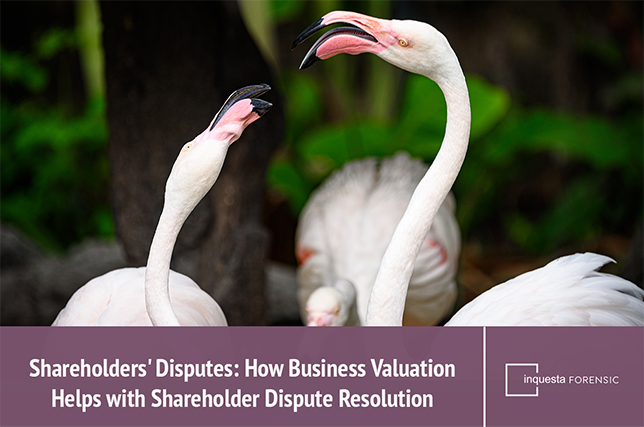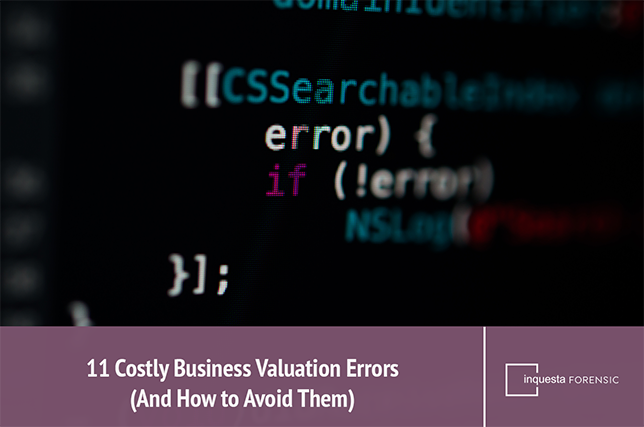Getting a valuation for your company can be vital for any number of different reasons. However, one of its most practical uses is business valuation for tax purposes.
Getting an idea of the true value of a business or its assets is highly important if you want accurate tax reporting, a merger or acquisition to go through without issue, or to comply with tax disputes.
In our blog we will go into detail on business valuation, ask ‘what is business valuation for tax purposes’, as well as discussing the best valuation methods for you, depending on your needs and your circumstances.
What is Business Valuation in the UK?
Business valuation in the UK simply refers to the process of determining the market value of a business. It can be incredibly useful for a number of reasons, most notably to put a price tag on a company prior to a sale, or if a director wishes to sell any shares.
Aspects of a company that can affect its value include profitability, reputation, intellectual property, strength of management, how well the business is established in both the industry and the local area, and more.
Valuation can take place for a variety of reasons:
- Work out value ahead of a prospective sale
- Provide investors with a realistic estimate of the business’ worth
- A business valuation can prove a vital part of your tax return
- It can be useful to determine a fair share price
- You can utilise business valuation to conduct an assessment of the financial health of your business — are any areas underperforming?
What does ‘Business Valuation for Tax Purposes’ mean?
Business valuation for tax purposes is the process of determining the current value of your company for the specific reason of supporting your ongoing tax matters. It requires you to assess your company and its assets in accordance with all required tax regulations and guidelines.
Your valuation acts as a primary basis by which you determine the overall taxable value of your assets and your company at large.
Tax authorities require companies to accurately determine the valuation of their assets as part of the tax reporting process. Business valuation for tax purposes can be required for a number of reasons, including but not limited to:
To Comply With Tax Regulations
Companies may be required to determine the fair market value of their assets in order to ensure both accurate reporting of their taxes as well as compliance with tax regulations. This includes valuing assets for income tax returns, property tax assessments, and any other tax filings that may be relevant.
Mergers and Acquisitions
Whenever a company engages in a merger or acquisition, it is vital that an accurate business valuation is conducted. Without definitive valuation, it becomes near impossible to determine the tax consequences of the process and purchase price, as well the estimated tax liabilities or benefits.

Estate Planning and Gift Tax
Tax valuation is required when transferring company ownership via the method of formal estate planning or gifting. Determining the value of the business’ assets helps determine future potential estate or gift tax liabilities, while ensuring total compliance with all relevant tax laws.
Evidence in the Event of a Tax Dispute
Should your company ever be faced with a tax dispute with HMRC, you will be required to provide detailed evidence of your company’s finances. Having up-to-date valuations of firm assets can go a long way towards effectively defending your position.
What are the Main Approaches to Business Valuation For Tax Purposes?
While not ever being a truly simple process, experts do have a number of common valuation techniques and methodologies that they like to employ to make the process as straightforward as possible. The main approaches to business valuation are net asset valuation and future earnings methods, as well as an approach focusing on the value on the market.
As mentioned above, there are a number of different approaches to business valuation incorporated by experienced directors and experts alike to determine a business valuation for tax purposes. These include:
Net Asset
A commonly used method of business valuation for tax purposes, this approach is designed to determine the value of a business by considering the net value of its assets.
This approach takes into account the fair market value of all company assets, as well as tax considerations that may be present, in order to come up with an estimate of the overall value of the business.
The net asset approach is primarily reserved for those companies driven solely by tangible assets. This includes companies that specialise in the sale or rental of inventory, equipment, or real estate.
Future Earnings
The premise of the future earnings method is that a company should, at least in some way, be based on how set up it is to generate earnings and gain increased revenue in the years to come. It posits that the future value of the business should have some say in its current value.
This approach is most commonly seen in business valuation for tax purposes where the company’s expected capacity to generate income in the future is a significant selling point – perhaps due to an emerging field, forecasted market trends, etc.
Comparison to Market Price
Market price can be a crucial method in tax valuation. This is because it can present the price at which any prospective buyer would actually be willing to pay to purchase the company.
They do this by asking the question, what similar businesses have been sold recently? Any obvious examples of similar companies sold in recent years will then be utilised as an effective basis for the value of your business.

Business Valuation Advice You Can Trust
Getting to grips with the intricacies of business valuation for tax purposes can be highly useful for companies navigating the often complex landscape of tax compliance.
The more thorough and accurate your valuation, the more clarity you will have in regards to your tax obligations, allowing you to better plan ahead for the future of your firm.
As mentioned above, there are a number of different common approaches to business valuation for tax purposes, most notably net asset and future earnings methodologies, as well as looking into market values. If you can’t decide which method, or combination of methods, would be most appropriate for your specific situation, you should consider expert assistance.
An expert in valuation — such as a forensic accountant — can help you to conduct a comprehensive valuation from top to bottom, leaving no stone unturned. The experience an expert forensic accountant possesses will mean that you can be safe in the knowledge that every aspect of the job will be done in compliance with any relevant UK tax laws.
While business valuation is particularly common when it comes to cases of divorce and shareholder disputes, regardless of the reason you might want to undertake your business valuation for tax purposes, an expert who understands the intricacies of the process can bring peace of mind at what can prove to be a stressful time.
The team at Inquesta Forensic are experts when it comes to business valuation — whether it’s for ta valuation or something else. Contact us today to find out more about our business valuation service, what else we can do to help you, or to receive a free quotation.
- Your Partner’s Been Convicted: Can They Take Your House? What Section 10a POCA Means For You
- The Essential Role of Forensic Accounting in High Net Worth Divorce
- How to Value a Startup Business: A Guide for UK Entrepreneurs
- Pig Butchering Scams: Guide to Crypto Romance Fraud
- Shareholders’ Disputes: How Business Valuation Helps with Shareholder Dispute Resolution








